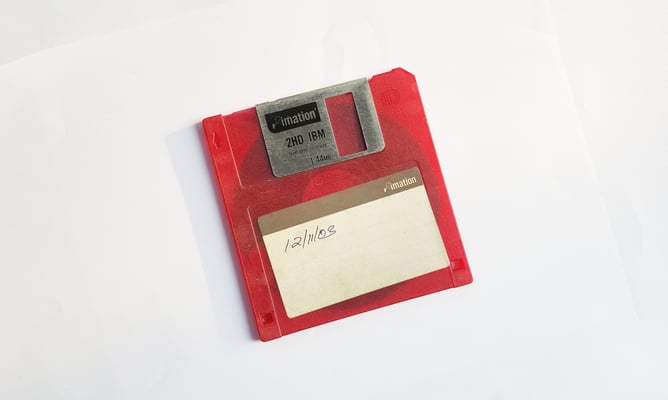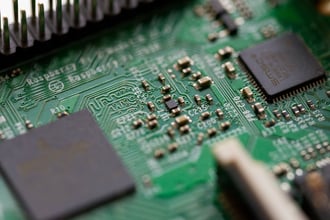More than 90 percent of the data that exists was produced in the last two years, and we’re generating 2.5 quintillion more bytes every day. The Data Revolution is here, regardless of how prepared you are. And this revolution, like those that came before it, is not simply advancing our economic and social progress, but outmoding ways of business and understanding on a global scale.

You can’t let fears of governance issues or the mess of massive datasets dissuade you from tackling your data. It isn’t just changing our business capabilities, governments, and technology, it’s changing the way we inhabit, consider, and impact the world. In order to consider the potential impacts of this revolution, let’s take a quick history lesson about the previous economic revolutions
The Industrial Revolution and the Machine Age
The Industrial Revolution (1760-1840) centered around the automation of farming practices, the invention of the sewing machine, and improved food preservation systems. Coupled with improved transportation systems driven by steamships and railways, consumer goods and food no longer needed to be locally produced or an extreme luxury.

Electricity and the assembly line powered the Machine Age (1880-1945). Almost overnight, the creation of overcapacity was possible. Excess was no longer relegated to the elite. Data leaders face a similar problem now, with more data than they can download, let alone wrap their heads around.
 One key takeaway from these revolutions is that progress always outpaces questions of ethics and human need. The economist Michael C. Jensen explains that, while these revolutions increased aggregate welfare, “the large costs associated with the obsolescence of human and physical capital [generate] substantial hardship, misunderstanding, and bitterness.” Whenever jobs and skill sets are threatened,—whether by a sewing machine or AI—there is a lot of fear and potential for harm.
One key takeaway from these revolutions is that progress always outpaces questions of ethics and human need. The economist Michael C. Jensen explains that, while these revolutions increased aggregate welfare, “the large costs associated with the obsolescence of human and physical capital [generate] substantial hardship, misunderstanding, and bitterness.” Whenever jobs and skill sets are threatened,—whether by a sewing machine or AI—there is a lot of fear and potential for harm.
The Digital Revolution
The Digital Revolution (1960-1990s) brought us from the hardware world into the realm of software and instantaneous communication. We developed renewable energy systems and brought computing from the purview of governments and universities into our homes and pockets.

The Digital Revolution has become enjambed with the subsequent Data Revolution, which creates more responsibilities than anything else. While we look forward and aspire to leverage the magic of data, we must also cement the ideals and goals of the previous revolution that we want to keep. As Moore’s Law becomes unsustainable, how can we improve semiconductors, or what must be revolutionized to create further computing advances? What political and organizational changes need to occur to make green energy a viable alternative? What about the Internet do we need to safeguard, and what must we destroy to apotheosize the platform?
The Data Revolution
The fourth Industrial Revolution is only just picking up speed. We have more information than we can handle, and all the challenges that come with our bounty. Just as railroads, refrigeration, electricity, and semiconductors disrupted human productivity and business models in past revolutions, now the neural nets and deep learning models of the Data Revolution (2000s - Present) are faster and smarter than we can ever be. Data is changing the ways that we eat, sleep, date, work, and conceive of ourselves. And just as in past, ethical concerns and fear are bedfellows with vast potential gains and visionary creations. With this advancement has come concerns about over-connectivity and decreasing attention spans.
This is not the first revolution, and it won’t be the last. And while we may be more self-aware than we were in the past, each revolution has been conscious of itself, while remaining unequipped to dream big enough. In the early years of computing, IBM President Thomas Watson said that he thought “there [was] a world market for maybe five computers.” We are more self-aware of the consequences of the Data Revolution, but we need to act—as individuals and organizations—to build the future we want to see.




